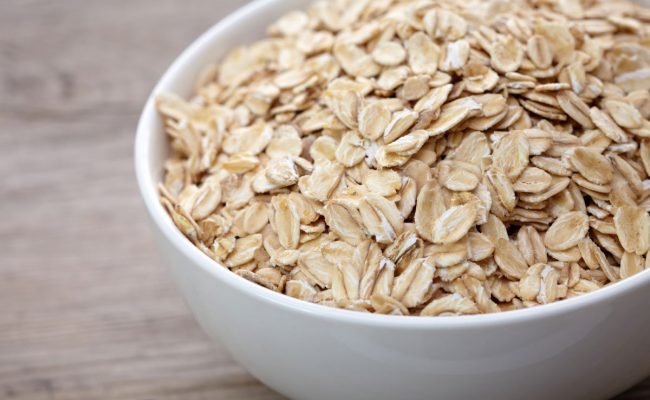
Carbohydrates, fat and protein all provide energy from food. Fat has been demonized as a taboo nutrient in the past, and more recently carbohydrates have been targeted as the nutrient to avoid. Carbohydrates turn into glucose molecules which get released in the blood. This signals insulin to be released. If blood glucose and insulin levels are constantly elevated, risk for obesity, type 2 diabetes, heart disease and elevated blood triglycerides can be increased.
Carbohydrates can range in nutrient density and the amount of how they impact blood glucose levels. Simple carbohydrates are usually classified as sugary beverages, sweets, white bread, white pasta, white rice, etc.
These carbohydrates break down quickly and raise blood sugar levels. Complex carbohydrates are considered foods that provide fiber, antioxidants, vitamins and minerals. Examples of complex carbs include whole grains, legumes, vegetables and some fruits.
Eliminating carbs can be a popular weight loss tactic, but eliminating ALL carbs from your diet can have down sides. Since not all carbohydrates impact the body the same way, it may be best to eliminate only “empty nutrient” carbohydrate foods.
Some health conditions may require stricter carbohydrate elimination, but in general most people don’t need to eliminate all carbs.
Why carbs get a bad rap
Replacing fats with carbohydrates was a common nutrition advice in the past. Fats were seen as a main nutrient that increased risk for cardiovascular disease and even weight gain.
The popularity of fat free snacks increased and were encouraged as long as they were low in fat.
See also: Should you mix fat and carbs in the same meal?
However, nutrition advice has shifted away from this misplaced fat phobia. More recent studies have suggested high intakes of simple carbohydrates can increase risk for type 2 diabetes, and eating lower intakes of simple carbs is recommended.
In fact, higher intakes of heart healthy monounsaturated fats have been shown to be heart healthy and could be beneficial for weight loss.
Cutting simple carbs is a first step for weight loss, and many diets advocate a low carbohydrate intake. However, cutting out all carbs may not be the best long term dietary approach for most people.
Which carbs can be beneficial?
Foods naturally providing carbohydrates like fruits, vegetables, grains and legumes have many valuable nutrients. Eliminating all these foods greatly limits the variety of foods you can eat.
Eliminating simple carb sources like sugary sweets, beverages, chips, cookies, white bread, etc. does not cut out valuable nutrients from the diet.
One of the main differences between simple and complex carbs is the fiber content. The natural fiber amount found in whole grains, fruits, vegetables and legumes influences the way the body absorbs the carbohydrates.
The soluble fiber helps slow the release of glucose into the bloodstream.
By eliminating all carbs, you cut out most of your dietary fiber sources. You also cut out natural sources of antioxidants, vitamins and minerals.
Athletes can also benefit from having some carbs in their diet because muscles use carbs as a main energy source.
If you are working out, getting healthy complex carbohydrates like fruits and vegetables in your diet can be beneficial.
What happens when you eliminate carbs
Eating a very low carbohydrate diet can make you feel tired and sluggish. Carbohydrates are an easy fuel source for your body to use.
If you don’t get adequate amounts in the diet, your body will break down protein and fat to “rearrange” them to look like carbohydrate units the body can use.
Symptoms from eating a very low carbohydrate diet can include: headaches, problems focusing, feeling tired, bad breath or body odor and constipation.
Cutting out sugar and refined carbohydrates can be a good thing. Replacing foods higher in simple sugars with foods higher in heart healthy fats can be a good thing.
For example, the Mediterranean diet, which is higher in olive oil, fatty fish and nuts, is associated with many health benefits including weight regulation.
A 2008 study (1) compared weight loss in people following a low carbohydrate, Mediterranean, or low fat diet.
Participants followed these diets for 2 years. At the end of 2 years, the Mediterranean diet and low carbohydrate group had similar weight loss. The Mediterranean diet is higher in complex carbohydrates and fiber intake.
This study suggests eliminating carbs from your diet may not be necessary just cutting out simple sugars. Complex carbs have many nutrients that be beneficial for health.
Speak with your healthcare team
Eliminating dietary carbohydrates may be recommended for some health conditions and may be advised in certain instances from health professionals.
Before you eliminate carbs from your diet or if you have questions on what carbohydrates would be beneficial to cut out, speak with your healthcare team.
Conclusion: should you eliminate carbs?
Eliminating carbs means you are cutting out foods void of nutritional value like sweetened beverages, sweets, white breads, etc. Eliminating sugars from your diet may help lower risk for type 2 diabetes, obesity and other health conditions.
However, if you are also eliminating complex carbohydrate foods like vegetables, whole grains or legumes, you are cutting out many important nutrients from your diet.
Cutting carbs is common for many weight loss plans. However, if you are trying to eliminate all carbs, you could have some symptoms like headaches, fatigue, low energy or constipation.
Cutting out sources of added sugar in the diet can have many health benefits. However, there isn’t research supporting cutting out all carbs that provide fiber and other nutrients is beneficial for health.
Unless your healthcare team recommends eliminating carbs, focus on cutting out added sugars. Keep the fruits, vegetables, whole grains and legumes.
Long term weight loss studies have shown diets higher in complex carbs and heart healthy fats, like the Mediterranean diet, can be supportive for weight loss.
Other health benefits like lowered risk for heart disease are also associated with the Mediterranean diet.
Previous nutrition advice was to avoid dietary fats and eat more carbs. Then the pendulum swung to the other extreme advocating eliminating all carbs.
Research studies suggest eating nutrient dense foods, not eliminating one macronutrient, may be the best approach for overall health.











